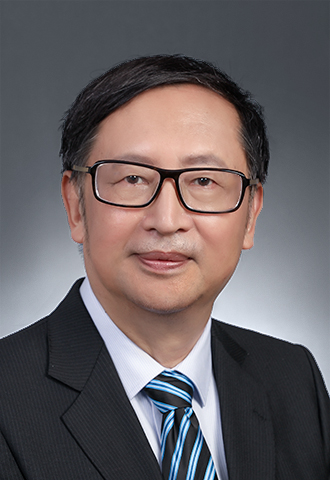-

- Yang Jiemian
- Senior Research Fellow
- Institute for Foreign Policy Studies
- Yang Jiemian: How to Look at and Deal with Security Issues in Eurasia
- Global Cultural Building in the New Context for a Community of Shared Future for the Mankind
- Reflecting on and Redefining of Multilateralism at the New Times
- International landscape roiling with changes brought by pandemic
- There Will Be No New Cold War
- China’s Foreign Policy under Presid...
- The Contexts of and Roads towards t...
- Seeking for the International Relat...
- Three Features in China’s Diplomati...
- Middle Eastern countries see role f...
- China strives to become a construct...
- In Pole Position
- 'Afghan-led, Afghan-owned' is way f...
- Wooing Bangladesh to Quad against C...
- China's top internet regulator mull...
- The Establishment of the Informal M...
- China’s Economic Initiatives in th...
- Perspective from China’s Internatio...
- Four Impacts from the China-Nordic ...
- Commentary on The U. S. Arctic Coun...
- Opportunities and Challenges of Joi...
- Identifying and Addressing Major Is...
- Opportunities and Challenges of Joi...
- Evolution of the Global Climate Gov...
- China’s Energy Security and Sino-US...
- China-U.S. Cyber-Nuclear C3 Stabil...
- Leading the Global Race to Zero Emi...
- Lies and Truth About Data Security—...
- Biden’s Korean Peninsula Policy: A ...
- Competition without Catastrophe : A...
- China's Global Strategy(2013-2023)
- Co-exploring and Co-evolving:Constr...
- 2013 Annual report
- The Future of U.S.-China Relations ...
- “The Middle East at the Strategic C...
SIIS President Jiemian YANG’s Opening Remarks
Shanghai, March 15th, 2012
Yang Jiemian
Respected Dr. Anderson B. Shankanga,
Respected Madam Phyllis M. Johnson
Respected Ambassador Tang Zhenqi
Ladies and gentlemen,
Good afternoon. First of all, on behalf of the Shanghai Institutes for International Studies, I would like to extend our warm welcome to all the participants, especially the African ones to this Seminar.
This Seminar will focus on two topics. One is China-Africa and China-Zimbabwe Relations. The other is Global and African Focal Points: Perspective and Proposal. Here I would like to spend a few minutes on why we want to have this Seminar.
There are three purposes of this Seminar. The first purpose is to further share our academic and policy-wise studies on ourselves respectively and mutually. The Sino-African relations need to be further improved and so does our understanding. We appreciate the help from the others Westerner included, however, we must take the initiative in our own hands. In the past year Africa witnessed a continuous development. Compared with North Africa, Southern Africa enjoyed relative stabilities and progresses. China-African friendship has been further enhanced. For example, Mr. Jia Qinglin, the Number Four Leader in China, made a successful visit to the African Union at the beginning of this year.
Our second purpose is to pool our wisdom to foresee the opportunities and challenges of our relationship on the road ahead. 2012 is the year of elections. With a number of general elections in the United States, France, Russia and others, its political implication should be fully understood. 2012 is a year full of economic challenges. The world has not moved out of the financial crisis and global economic difficulties. 2012 is also a year of social movements. It merits our attention to prepare for the continued turmoil in North Africa and West Asia and so do for its repercussions.
Finally, we aim at working out blueprints for ourselves and the world as well. In order to ensure peace, development and cooperation in the upcoming decade and beyond, we need to have our own strategic vision and theoretic framework. Recently there are quite a few scholars in the West to present their views on the global trends. For instances, Dr. Zbigniew Kazimierz Brzezinski published his book entitled Strategic Vision and Professor Francis Fukuyama contributed his recent article to the Foreign Affairs entitled “‘Future of History’: Is Liberal Democracy Doomed?”. However, both have great scholarship but neither has the position of ours. If we believe in what we are practicing, we must to convince ourselves first by visible and tangible achievements. In the meantime, we must work hard to outline the future course which transcends the immediate and material needs.
In conclusion, I want to stress again that we need to contribute our scholarly wisdom and pragmatic recommendations to the self-strengthening of the developing world and promoting the international system towards a fairer and more equitable direction.
I am sure that this Seminar will certainly live up to our expectation by its frank, stimulating and fruitful discussions.
Thank you very much.
Source of documents:
